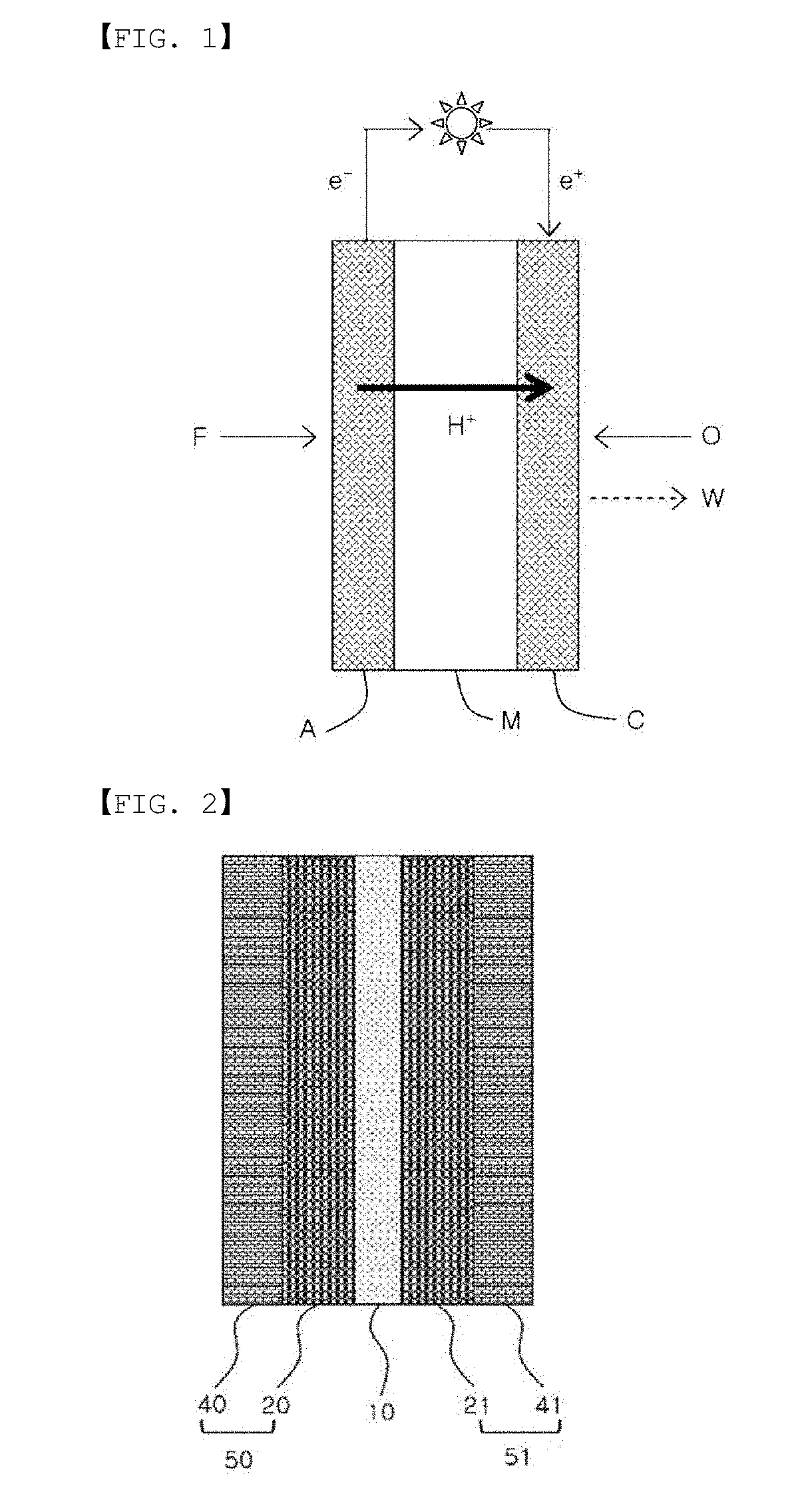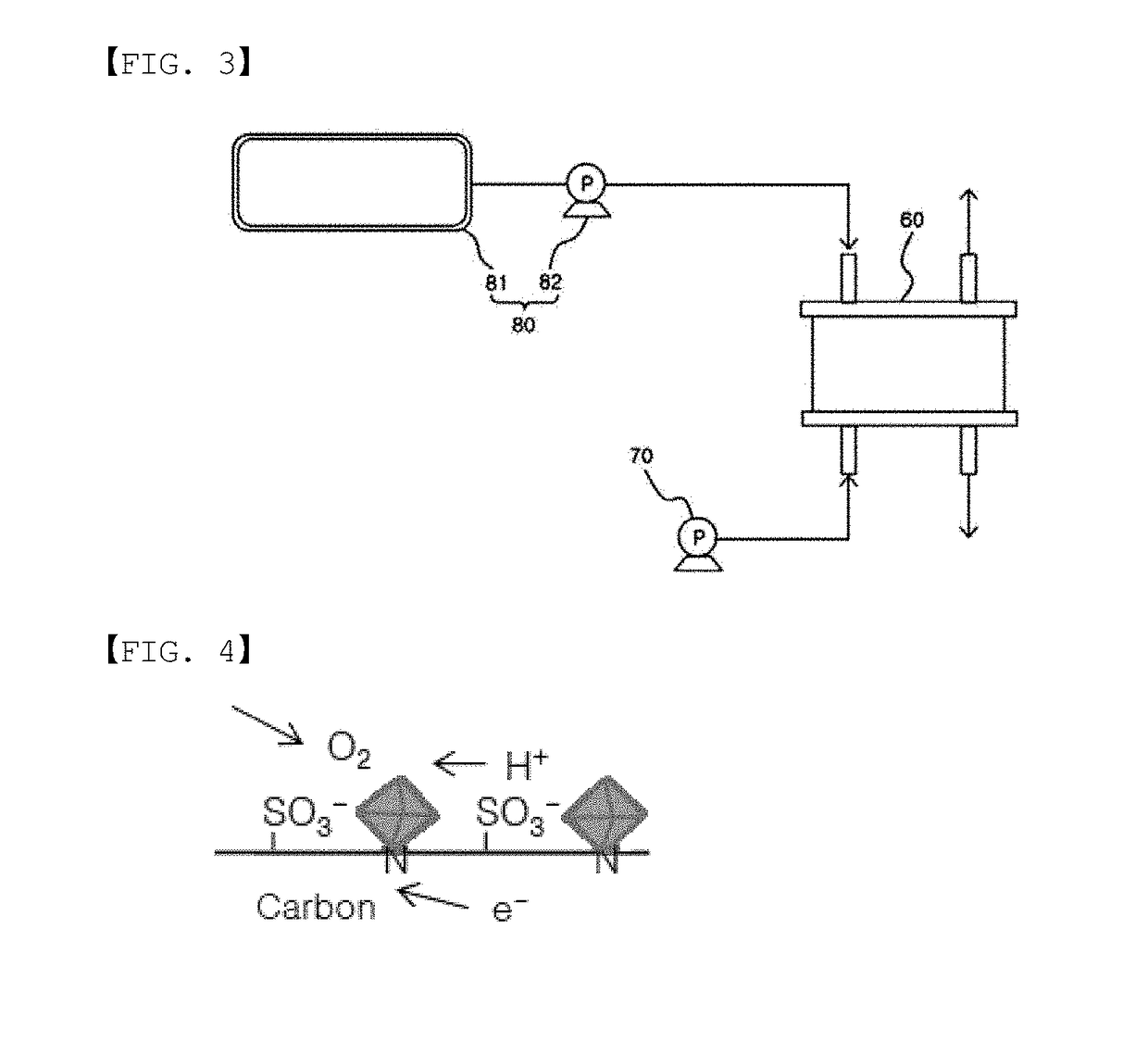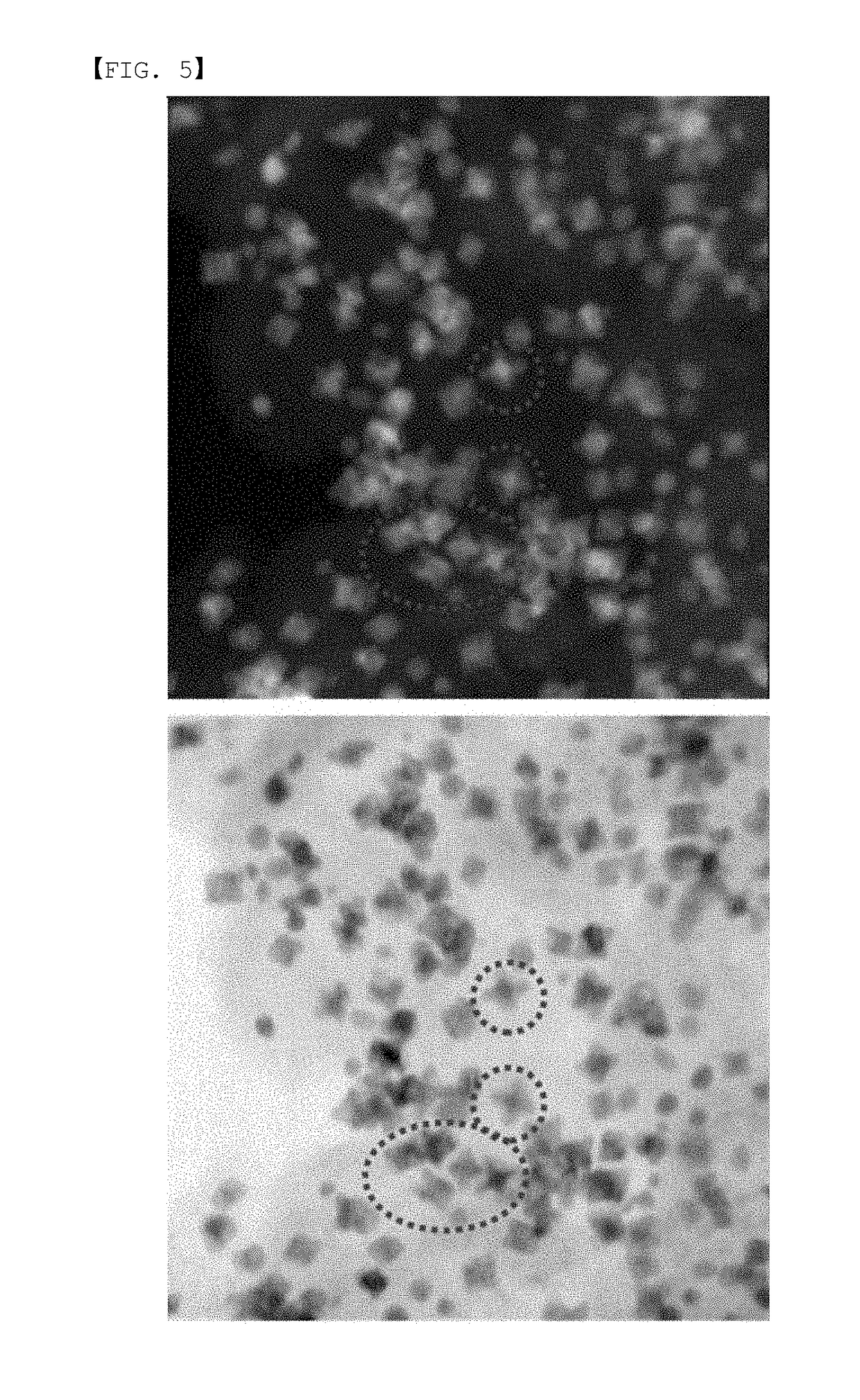Catalyst and method for preparing the same
a catalyst and catalyst technology, applied in the field of catalysts and methods for preparing the same, can solve the problems of slow oxygen reduction reaction in the cathode, low catalyst utilization rate, and low catalyst utilization rate, and achieve the effects of increasing the catalyst utilization rate of the electrode layer, increasing the degree of dispersion of alloy particles, and high activity
- Summary
- Abstract
- Description
- Claims
- Application Information
AI Technical Summary
Benefits of technology
Problems solved by technology
Method used
Image
Examples
example 1
[0156]After sufficiently dispersing 64.8 mg of the carbon coated with PEI and nafion of Preparation Example 1 into 25 mL of ethylene glycol, 66.9 mg of platinum(II) acetylacetonate (Pt(acac)2), 43.7 mg of nickel(II) acetylacetonate (Ni(acac)2) and 96.9 mg citric acid were added thereto, and the result was sufficiently stirred.
[0157]In order to remove water, the temperature was raised to 120° C. under vacuum, and the result was heated for 30 minutes, and after the temperature was raised to 200° C. under nitrogen atmosphere, the result was heated for 2 hours and 30 minutes. Herein, octahedron structured metal particles were formed during a synthesis process of raising the temperature from 120° C. to 200° C. and heating.
[0158]The result was cooled to room temperature, and then filtered using ethanol and distilled water. The filtered octahedron structured PtNi-carbon complex was dried in an oven, and placed in a 0.5 M sulfuric acid solution. The result was heated for 2 hours at 80° C., ...
example 2
[0159]After sufficiently dispersing 58.5 mg of the carbon coated with PEI and nafion of Preparation Example 1 into 30 mL of ethylene glycol, 78.7 mg of platinum(II) acetylacetonate (Pt(acac)2), 51.4 mg of nickel(II) acetylacetonate (Ni(acac)2) and 115.3 mg of citric acid were added thereto, and the result was sufficiently stirred.
[0160]In order to remove water, the temperature was raised to 120° C. under vacuum, and the result was heated for 30 minutes, and after the temperature was raised to 200° C. under nitrogen atmosphere, the result was heated for 2 hours and 30 minutes. Herein, octahedron structured metal particles were formed during a synthesis process of raising the temperature from 120° C. to 200° C. and heating.
[0161]The result was cooled to room temperature, and then filtered using ethanol and distilled water. The filtered octahedron structured PtNi-carbon complex was dried in an oven, and placed in a 0.5 M sulfuric acid solution. The result was heated for 2 hours at 80° ...
PUM
| Property | Measurement | Unit |
|---|---|---|
| time | aaaaa | aaaaa |
| pH | aaaaa | aaaaa |
| weight ratio | aaaaa | aaaaa |
Abstract
Description
Claims
Application Information
 Login to View More
Login to View More - R&D
- Intellectual Property
- Life Sciences
- Materials
- Tech Scout
- Unparalleled Data Quality
- Higher Quality Content
- 60% Fewer Hallucinations
Browse by: Latest US Patents, China's latest patents, Technical Efficacy Thesaurus, Application Domain, Technology Topic, Popular Technical Reports.
© 2025 PatSnap. All rights reserved.Legal|Privacy policy|Modern Slavery Act Transparency Statement|Sitemap|About US| Contact US: help@patsnap.com



